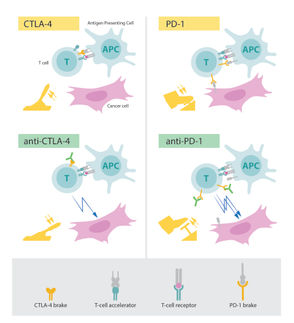Bristol-Myers Squibb Announces Clinical Development Program for Combretastatin A4 Prodrug
Technology Licensed From OXiGENE, Inc.
Advertisement
Bristol-Myers Squibb Company (NYSE: BMY), a world leader in oncology, and OXiGENE, Inc. (Nasdaq: OXGN, SSE: OXGN), a world leader in the field of vascular targeting, today reported on an Investigational New Drug (IND) submission for the systemic use of Combretastatin A4 Prodrug (CA4P). Bristol-Myers Squibb has announced its intention to initiate a clinical program for the compound, an anti-tumor vascular targeting agent which is currently being evaluated in three Phase I clinical trials conducted by OXiGENE. It is currently anticipated that the first patient will be dosed as early as 30 days after an acceptance of this submission. Bristol-Myers Squibb licensed the technology for the systemic use of CA4P from OXiGENE in December 1999.
"We believe the novel approach made possible by combretastatin shows promise for attacking, in a unique way, the lifeline of tumors, and we are committed to contributing to the development of this new anti-cancer compound," said Renzo Canetta, M.D., vice president, Clinical Oncology, Bristol-Myers Squibb.
OXiGENE licensed the technology from Arizona State University and has been conducting three Phase I clinical trials in the U.S. and in England, including more than 80 treated patients to date, over the past two years. Interim results from these studies have demonstrated significant reduction in blood flow to existing solid tumors including certain instances of total tumor regression.
"OXiGENE is thrilled that Bristol-Myers Squibb has shown such interest in CA4P and we at OXiGENE are confident that this IND submission will lead to the rapid development of the first effective anti-vascular targeting agent with therapeutic effect in existing tumor vasculature," said Bjorn Nordenvall, chairman and chief executive officer of OXiGENE. "This development is further validation of the important role that OXiGENE plays bringing promising technologies out of academic institutions and to the attention of respected pharmaceutical companies such as Bristol-Myers Squibb."
Combretastatin is one of a new class of anti-cancer therapies that act by directly reducing a tumor's blood supply. CA4P is different from angiogenic inhibitors now in clinical development in that it attacks pre-existent tumor vasculature, as opposed to anti-angiogenic agents that inhibit the formation of new tumor-associated vasculature.












































